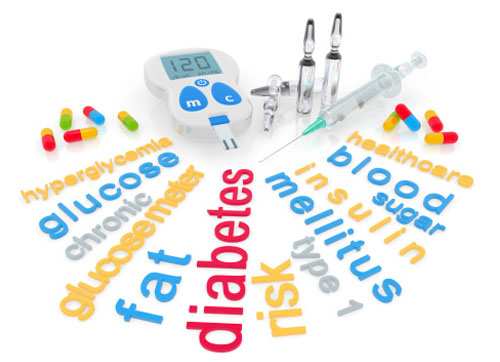
Fellowship in Diabetes Mellitus provides you with comprehensive up-to-date knowledge in the management of Diabetes to confidently deal with routine problems in Diabetes in clinical practice. The course covers different aspects of the inpatient and outpatient care of diabetes and management of various diabetes complications.
[/column]
Course At A Glance
- Course: Fellowship in Diabetes Mellitus
- Total Duration: 1 year
- Hours per Week: 4 – 8
- Medium of Instruction: English
- Fee is US $ 1000
About the Course
Diabetes usually affects organs like Brain (stroke), Heart (heart attack), Leg (gangrene), Kidney (kidney failure), Eye (retinopathy) and Nerve Damage (neuropathy).
Nearly 44 lakh Indians in their most productive years — aged 20 to 79 years — aren’t aware that they are diabetic, a disease that exposes them to heart attack, stroke, amputations, nerve damage, blindness and kidney disease. The latest global figures on diabetes released by the International Diabetes Federation (IDF) has raised a serious alarm for India by saying that nearly 52% of Indians aren’t aware that they are suffering from high blood sugar. India is presently home to 65 million diabetics, second only to China which is home to 98.4 million diabetics. Against this scenario, Commonwealth Medical Evarsity offers a schematically designed and pedagogically-grounded course in Diabetes mellitus by incorporating features drawn from successful on-campus and distance education.
Objectives of the Program
The One year Fellowship in Diabetes Mellitus aims at preparing you as a generalist doctor with comprehensive up-to-date knowledge in the management of Diabetes that allows you to confidently deal with routine problems in Diabetes in your clinical practice. During the course the candidates will be trained in different aspects of the inpatient and outpatient care of diabetes. They will also be exposed to the management of various diabetes complications through postings in the diabetic eye, heart and foot clinics and intensive care. At the end of the Course the candidate will be fully competent to deal with any type of diabetes patient as well as with diabetes complications of any degree of severity.
After completion of the Program the student will be able to do
- Screening and diagnosis of diabetes.
- Treatment of diabetes: Oral Hypoglycemic Agents and Insulin with latest developments.
- Complications of diabetes and its management
Career Prospects
The primary objective of this course is to metamorphose general practitioners to family doctors who are adept not only at diagnosing but also in the management of Diabetes. While doing so, it imparts career enhancing skills empowering him the knowledge of a Diabetologist, enabling him to render primary care in Diabetes, while at the same time helping him to become knowledgeable and conscious of the need to refer whenever needed.
Course Eligibility
MBBS/MBchB/MD doctors with Medical registration in their respective country Medical council.
Course Syllabus
Semester 1
|
Semester 2
|
Case Studies
|
Course Delivery Format
Taking leaf from Winston Churchill’s philosophy of “always ready to learn although… not always like being taught”, Commonwealth Medical Evarsity is transforming medical education by garnering learning empowered by the interactive platform of digital technology. Commonwealth Medical Evarsity model of blended education integrates best practices of ‘chalk and board’ with emerging technologies to make mockery of fragmented medical care, that is the bane of the rising costs of health care today!
The Commonwealth Medical Evarsity offers best of the models of blended education running online lectures, with the convenience of self-study at one’s own pace, time and place, complemented by online faculty interactions and clinical exposure through hospital rotations.
A rich learning environment is provided through the SmarTeach Learning Platform with access to:
- Online lectures delivered by experts in respective fields. The students can view the lecture any number of times using tools to conveniently play/pause, forward/rewind, skip/review, bookmark
- Included in these lectures are hundreds of text slides, illustrations and appropriate animations, audios and videos to make concepts easy to understand and difficult to forget
- Facility for the student to bookmark specific segments of a running lecture and ability to add your own notes for later review.
- Weekly self-assessment through multiple choice objective questions from a question bank across all subject areas
- Case-based discussions [CbD], where you will be expected to select 2 specific cases during the period of compulsory clinical rotation under the guidance of in-house clinician and ensure completeness of the Logbook for the cases decided.
Assessment
Diploma in Family Medicine follows a set pattern of formative assessments. Following are the types of assessments/examinations that each candidate is subjected to:
- Self Assessments, scheduled online at the end of every lecture and are neither timed nor graded.
- Weekend Graded Assessments [WGA] comprise a predetermined number of MCQs to be answered in a stipulated period of time. These are graded assessments and once submitted cannot be reattempted for a better score. The scores will carry considerable weight-age towards formative assessments of theory.
- Semester [ Semester – 6 months duration]-end Assessments [SA] are also MCQ Examination at the end of every semester
Course-end exam: The final exam,consists of 50 MCQs to be completed in stipulated period of time.
Course fee
The Course fee is US $ 1000
Join the Program
Links to Share
- “Prevalence of Diabetes in the World, 2013” by Ramon Martinez (technical advisor in health metrics for the Pan American Health Organization, the World Health Organization Regional Office for the Americas)
- “Global Prevalence of Diabetes: Estimates for the year 2000 and projections for 2030” by Sarah Wild, MB BCHIR, PHD1, Gojka Roglic, MD2, Anders Green, MD, PHD, DR MED SCI3, Richard Sicree, MBBS, MPH4 and Hilary King, MD, DSC
- “The use of social media among health care professionals within an online postgraduate diabetes diploma course” by A Lipp PhD, RE Davis PhD, R Peter MD, JS Davies MD
